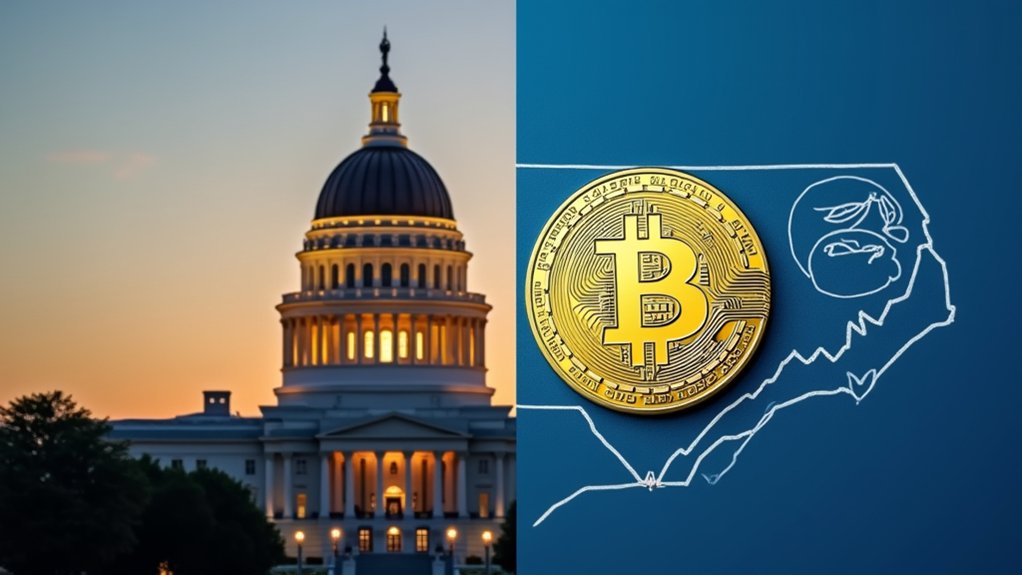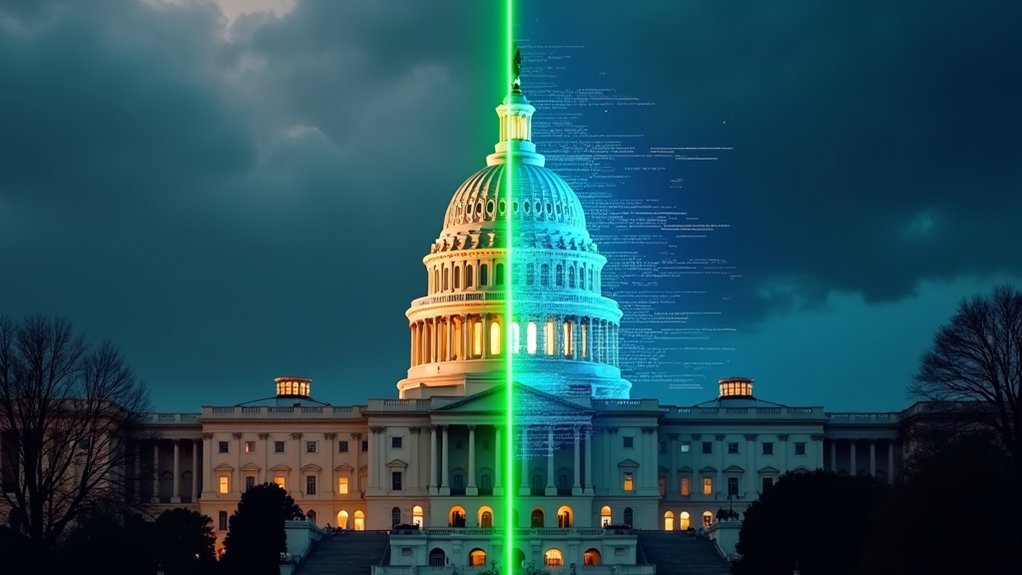While cryptocurrency markets continue to ride their rollercoaster of volatility, North Carolina lawmakers are pushing forward with an ambitious plan that could funnel billions into digital assets. Twin bills introduced in the state’s House and Senate propose establishing an independent “Investment Authority” with the power to allocate up to 5% of state retirement funds to crypto. That’s right – your teacher’s pension could soon be riding the Bitcoin wave.
North Carolina’s latest gambit: betting teachers’ retirement on Bitcoin’s wild ride while volatility reigns supreme.
House Bill 506 and Senate Bill 709 would allow investment in cryptocurrencies, stablecoins, and even those bizarre NFTs everyone was obsessed with last year. The legislation specifically targets the Teachers’ and State Employees’ Retirement System, along with the General Fund, Highway Fund, and 24 other special state funds. Talk about going all-in.
Bitcoin gets name-dropped in the bills, though lawmakers didn’t bother setting market cap criteria for which digital assets make the cut. The current proposal actually requires cryptocurrencies to have a market capitalization threshold of at least $750 billion over the past year. They did, however, insist on secure custody solutions and proper risk evaluation. The Governor and Council of State would provide oversight, presumably while Googling “what is blockchain” between meetings.
North Carolina isn’t alone in this crypto crusade. Twenty other states have proposed similar Bitcoin reserve legislation, including Montana, Florida, and Kentucky. Even the U.S. President recently signed an order for a Strategic Bitcoin Reserve. Institutional FOMO is real, folks.
The independent Investment Authority would work through third-party managers handling at least $100 million in assets. All investments must comply with financial safeguards and occur through regulated exchange-traded products. The state’s approach mirrors Indiana’s House Bill 1322, which specifically targets Bitcoin ETFs for pension investments. Basic stuff, really.
Proponents claim this modernizes North Carolina’s investment strategy, potentially boosting returns without cranking up risk. It’s about diversification, they say. Critics might point out that putting public employees’ retirement funds anywhere near the crypto casino requires serious caution. The fixed supply cap of Bitcoin could provide hedge against inflation, which may appeal to long-term pension fund managers.
Either way, the Tar Heel State is jumping headfirst into digital assets. State employees might soon find their financial futures tied to an asset that most people still don’t understand. Progress?





